historical miscellany, especially the 18th century and Edwardian periods
Don't wanna be here? Send us removal request.
Text

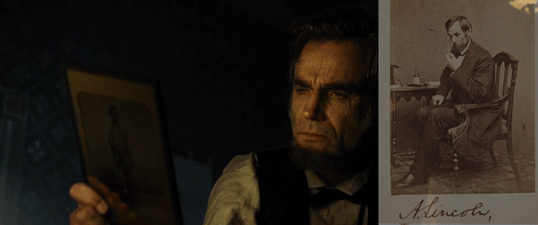
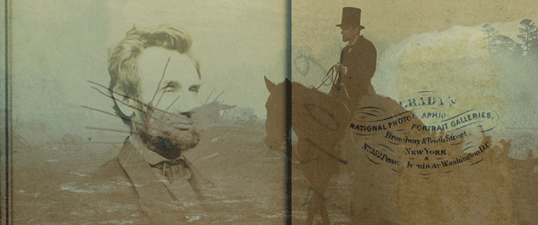
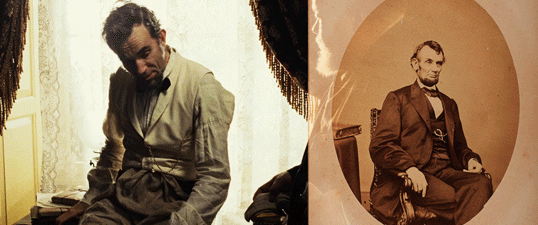
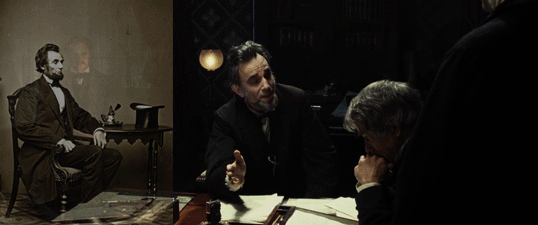
"It's nighttime. The ship's moved by some terrible power at terrific speed. And though it's imperceptible in the darkness, I have an intuition that we're headed towards a shore. No one else seems to be aboard the vessel. I'm very keenly aware of my aloneness."
-- Daniel Day Lewis as Abraham Lincoln (b.1809-d.1865) in Lincoln (2012) - dir. Steven Spielberg
34 notes
·
View notes
Photo








Movies I watched in 2019 •• Michael Collins (dir. Neil Jordan)
The Irish people established the Irish Republic. It can only be disestablished by the Irish people.
12 notes
·
View notes
Text


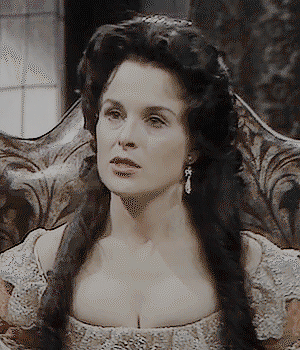

Mary of Modena | The First Churchills: Rebellion
42 notes
·
View notes
Photo

Persian Jewish women. Persia, Urmia, 1905
Photographed by A. N. Petrov
207 notes
·
View notes
Text
Popped by the library yesterday and picked up some books for Women’s History Month!
Civil War Wives: The Lives & Times of Angelina Grimké Weld, Varina Howell Davis, and Julia Dent Grant by Carol Berkin
The Burning of Bridget Cleary: A True Story by Angela Bourke
A Train in Winter: An Extraordinary Story of Women, Friendship, and Resistance in Occupied France by Caroline Moorehead
I’m also probably going to listen to the audiobook of The Girls Who Stepped Out of Line: Untold Stories of the Women Who Changed the Course of World War II by Major General Mari K. Eder, which has been on my list for forever.
Last March, I read Irena’s Children: The Extraordinary Story of the Woman Who Saved 2,500 Children from the Warsaw Ghetto and Sisters in Resistance: How a German Spy, a Banker’s Wife, and Mussolini’s Daughter Outwitted the Nazis, both by Tilar J. Mazzeo and both of which I would strongly recommend!
5 notes
·
View notes
Text
“If Ecclesiastical and Civil governments are ordained of God, then I contend that woman has just as much right to sit in solemn counsel in Conventions, Conferences, Associations, and General Assemblies, as man—just as much right to sit upon the throne of England, or in the Presidential chair of the United States.”
Angelina Grimké (later Weld), American women’s rights activist and abolitionist, 1837
#Angelina I have bad news for you from 2025…#screams into a pillow about it!!! :)#nineteenth century#american history#angelina grimke#angelina grimke weld#antebellum#women in history#women's history
2 notes
·
View notes
Text

Stolen. Not from slavery. Not from sharecropping. From benefits paid for in blood
#evil evil evil#my grandmother was able to buy a house for her four children after my worthless grandfather divorced her thanks to the GI bill#cannot imagine what their lives would have been like without it
9K notes
·
View notes
Photo




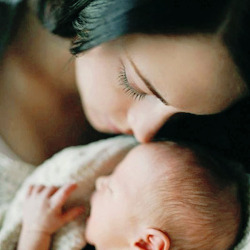

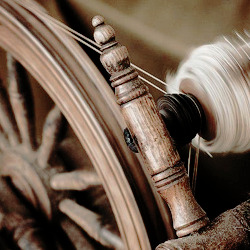


Lincoln’s Women • NANCY HANKS LINCOLN
“Mrs. Lincoln was…affectionate—the most affectionate I ever saw… [She] always taught Abe goodness, kindness…taught him sweetness and benevolence as well.” Dennis Hanks • “Mrs. Lincoln…was a woman [known] for the Extraordinary Strength of her mind among the family and all who knew her… She was a brilliant woman—a woman of great good sense and Modesty.” Nathaniel Grigsby • “She was beyond all doubts an intellectual woman, rather extraordinary if anything. [H]er nature was kindness, mildness, tenderness… Abraham was like his mother very much.” John Hanks
Nancy Hanks was born in 1784 in Virginia. The identity of her father is uncertain, and it’s possible that her parents were not married. She moved with her mother to Kentucky as a child, where she was raised by her maternal aunt and uncle. Nancy grew into a kind, hard-working young woman with a keen intellect and deep religious convictions. She worked as a sought-after seamstress until she married Thomas Lincoln in 1806. Their first child, Sarah, was born the next year. Not long afterwards, they moved onto a rural farm called Sinking Spring. It was there, on February 12, 1809, that Nancy gave birth to a baby boy named Abraham in a single-room log cabin. He was followed by a second son who tragically lived for only a few days.
Life could be difficult and demanding for poor families trying to survive on what was then the American frontier. In need of their help at home, the Lincolns were only rarely able to send their children to school. Nancy, however, knew many biblical passages by heart, and these she taught to Sarah and Abraham. Some accounts suggest that she also helped teach them to read and write, but whether she was in fact literate is not clear. She was remembered by friends and family as both a highly intelligent and very affectionate person. In September 1818, Nancy fell ill, most likely with “milk sickness” (snakeroot poisoning), while nursing sick family members who lived nearby. After suffering for nearly two weeks, she succumbed to the illness and died at the age of 34. The loss of such a gentle, loving presence—the first of many in his life—must have had a profound impact on little Abraham Lincoln, who so strongly resembled Nancy in personality and temperament. Though he may never have actually said “all that I am or ever hope to be I owe to [my mother],” the statement still has the ring of truth.
81 notes
·
View notes
Text






Nichelle Nichols in rehearsal for a 1961 production of the musical “Kicks and Co” in Chicago
Open images in a new tab or click through to the NYPL Digital Collections page for much larger/HD versions (and more pictures)!
16 notes
·
View notes
Photo




Details of a portrait of the family of Frederick, Prince of Wales, showing his four daughters: Princess Augusta (In Blue), Princess Elizabeth (In Green), Princess Louisa (In Pink), and Princess Caroline Matilda (In Yellow).
It was painted in 1751, the year he died unexpectedly at the age of 44. Little Caroline was born four months after his death, and her hand is resting on a bracelet with a miniature of him around her mother’s wrist.
Source
#eighteenth century#house of hanover#english history#augusta of great britain#elizabeth of great britain#louisa of great britain#caroline of great britain
223 notes
·
View notes
Photo


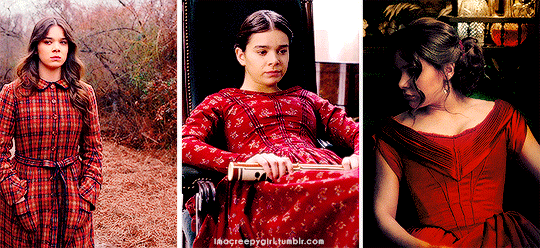
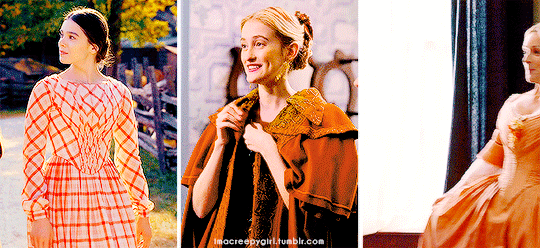

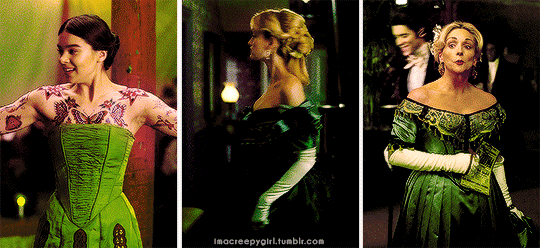
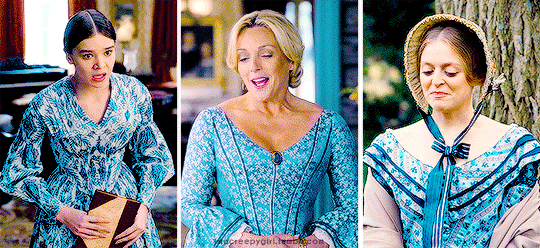
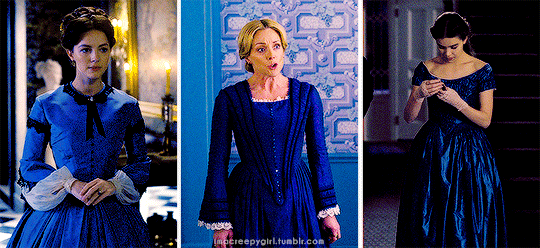
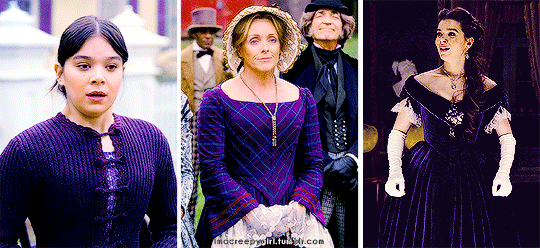
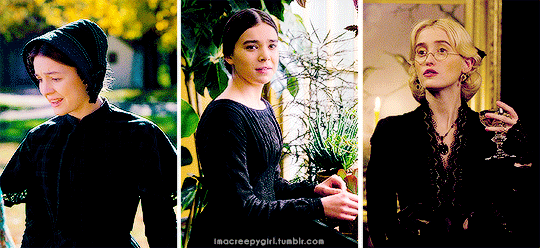
DICKINSON Costume desing by John Dunn (season 1) and Jennifer Moeller (season 2)
805 notes
·
View notes
Text




saw an entire display of these at target today...OTMA-core?!?
#I am too old (tm) to be wearing ultra feminine bows in my hair#(I know there is not actually a “too old” for that but...I FEEL too old. I feel ancient lol)#but these are so pretty and long and they appeal to me aesthetically sooooooooo much
8 notes
·
View notes
Text

Olga Nikolaevna in Finland, 1909.
21 notes
·
View notes
Photo





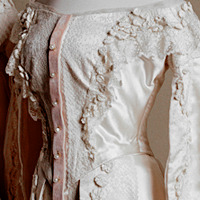



Grand Duchess Olga Nikolaevna Romanova
❁ “I really think people are much better now than they used to be. I’m very glad I live now when people are so kind.” ◦ “Dreams of happiness: Get married, always live in the countryside winter and summer, see only good people, no one official.” ◦ “Give my love to all who remember me.” • Olga (various sources)
❁ “I was very fond of all my brother’s children but perhaps most of the eldest, Olga. The two of us were soul mates. She resembled me in character, and that was perhaps why we understood each other so well.” • Grand Duchess Olga Alexandrovna
❁ “She was the cleverest of the sisters, and was very musical… She could play by ear anything she had heard…play the most difficult accompaniments at sight, and her touch on the piano was delightful. She sang prettily in a mezzosoprano. Olga Nicolaevna was very straightforward, sometimes too outspoken, but always sincere. She had great charm… She was generous, and an appeal to her met with immediate response.” • Baroness Sophie Buxhoeveden
❁ “She was a most amiable girl, and people loved her from the moment they set eyes on her. She took life seriously, and she was a clever girl with a sweet disposition. I think she possessed unusual strength of character.” • Lili Dehn
❁ “Olga was perhaps the cleverest of them all, her mind being so quick to grasp ideas, so absorbent of knowledge that she learned almost without application or close study. Her chief characteristics…were a strong will and a singularly straightforward habit of thought and action. [H]ad she been allowed to live her natural life she would, I believe, have become a woman of influence and distinction.” • Anna Vyrubova
361 notes
·
View notes
Text
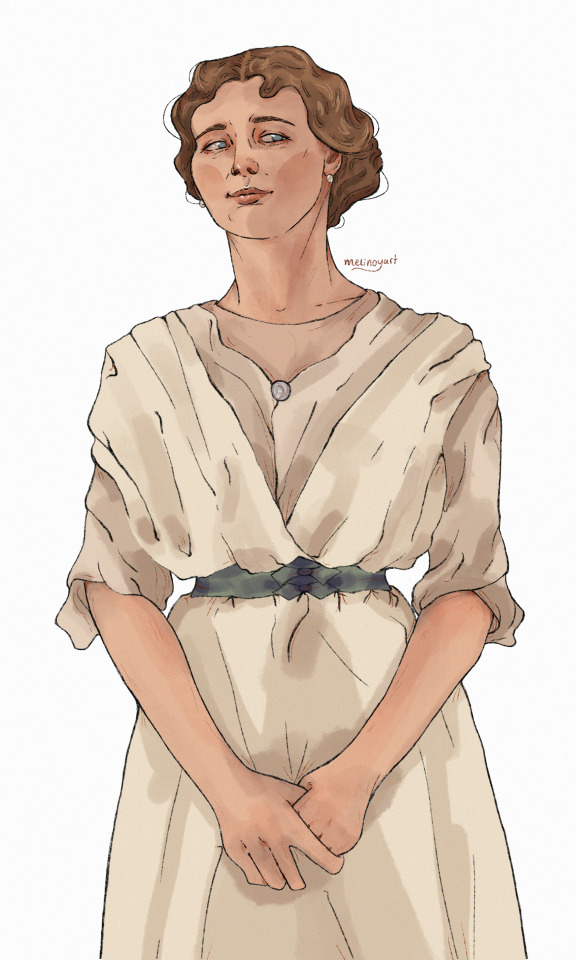
Grand Duchess Olga
i think this is the longest i've ever spent on a piece but imo it shows and i'm so incredibly pleased with it
209 notes
·
View notes
Text
pretty depressing that John Adams’ political rivals called his wife Abigail “Mrs. President” in a derogatory way (because they felt she had too much influence and was too involved in politics) back in 1798…and it turns out that, in 2024, the majority of the American electorate still considers “Mrs. President” to be inherently pejorative
8 notes
·
View notes
Text

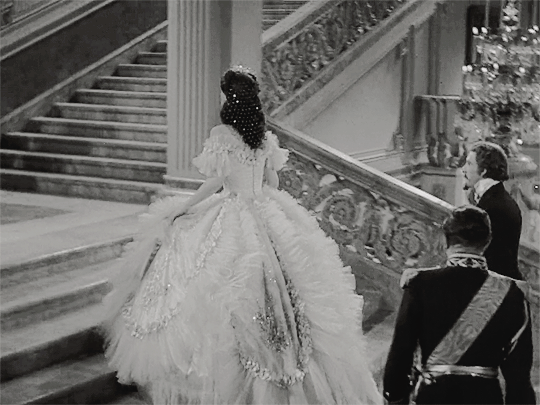
LORETTA YOUNG as EMPRESS EUGENIE "I think she lived in a kind of fairy tale, fascinated by her extraordinary destiny." - Augustin Filon on Eugenie
2K notes
·
View notes